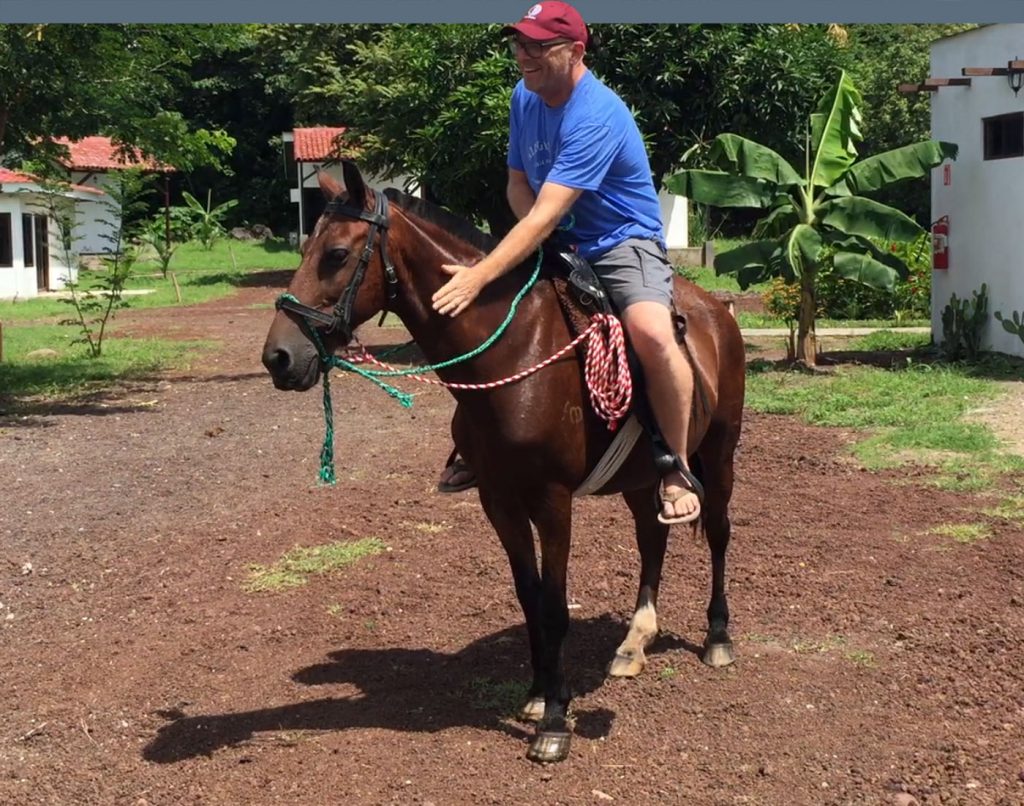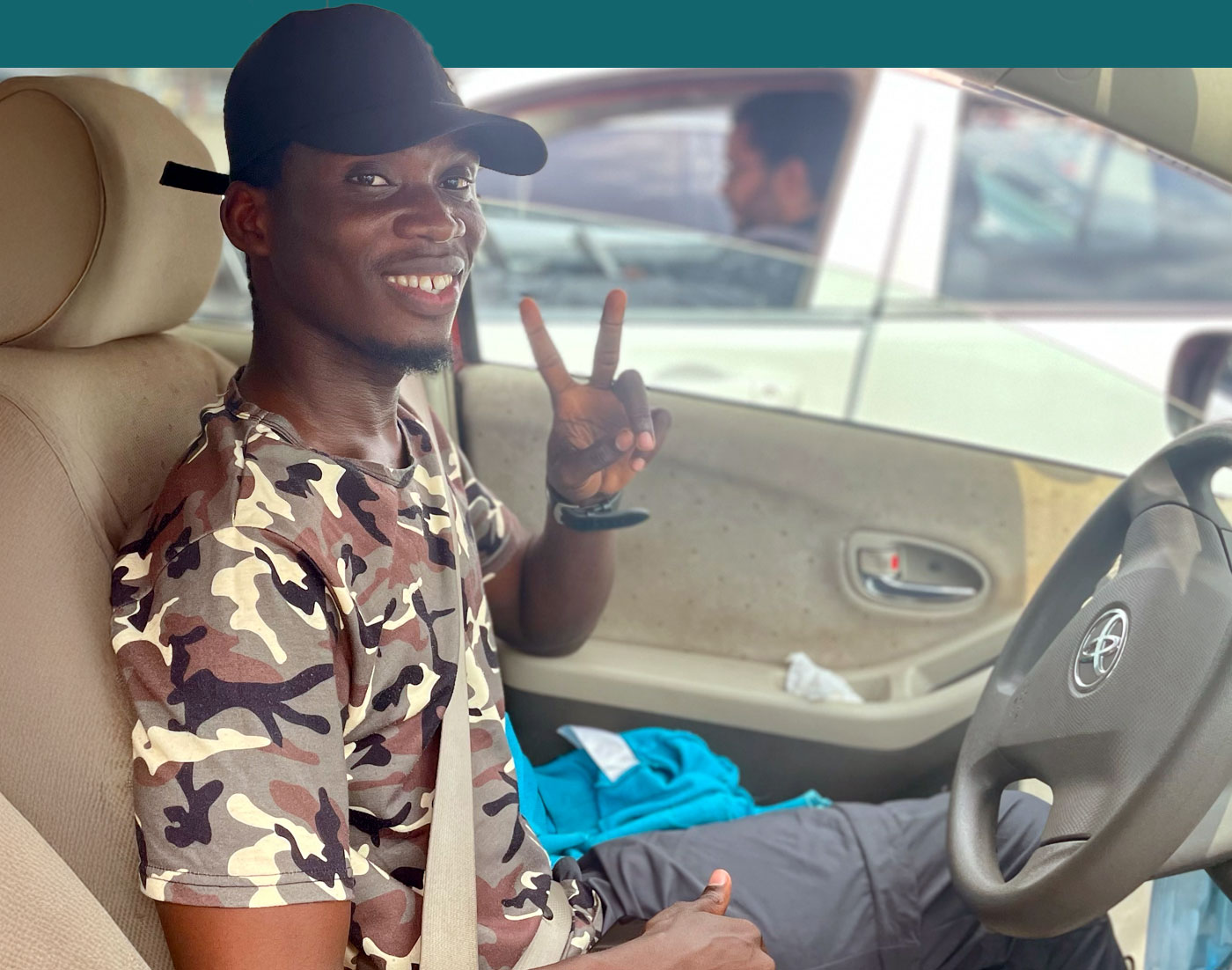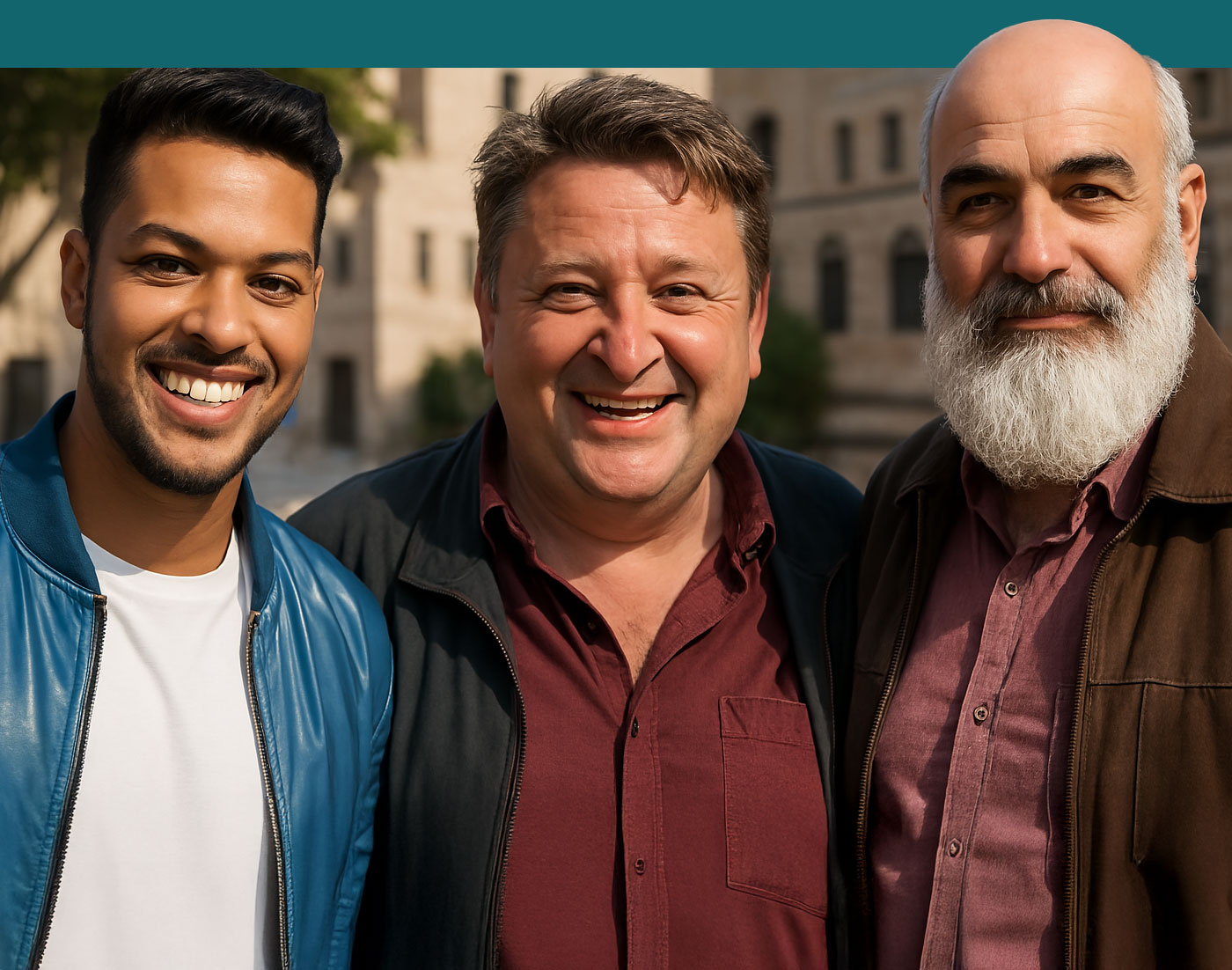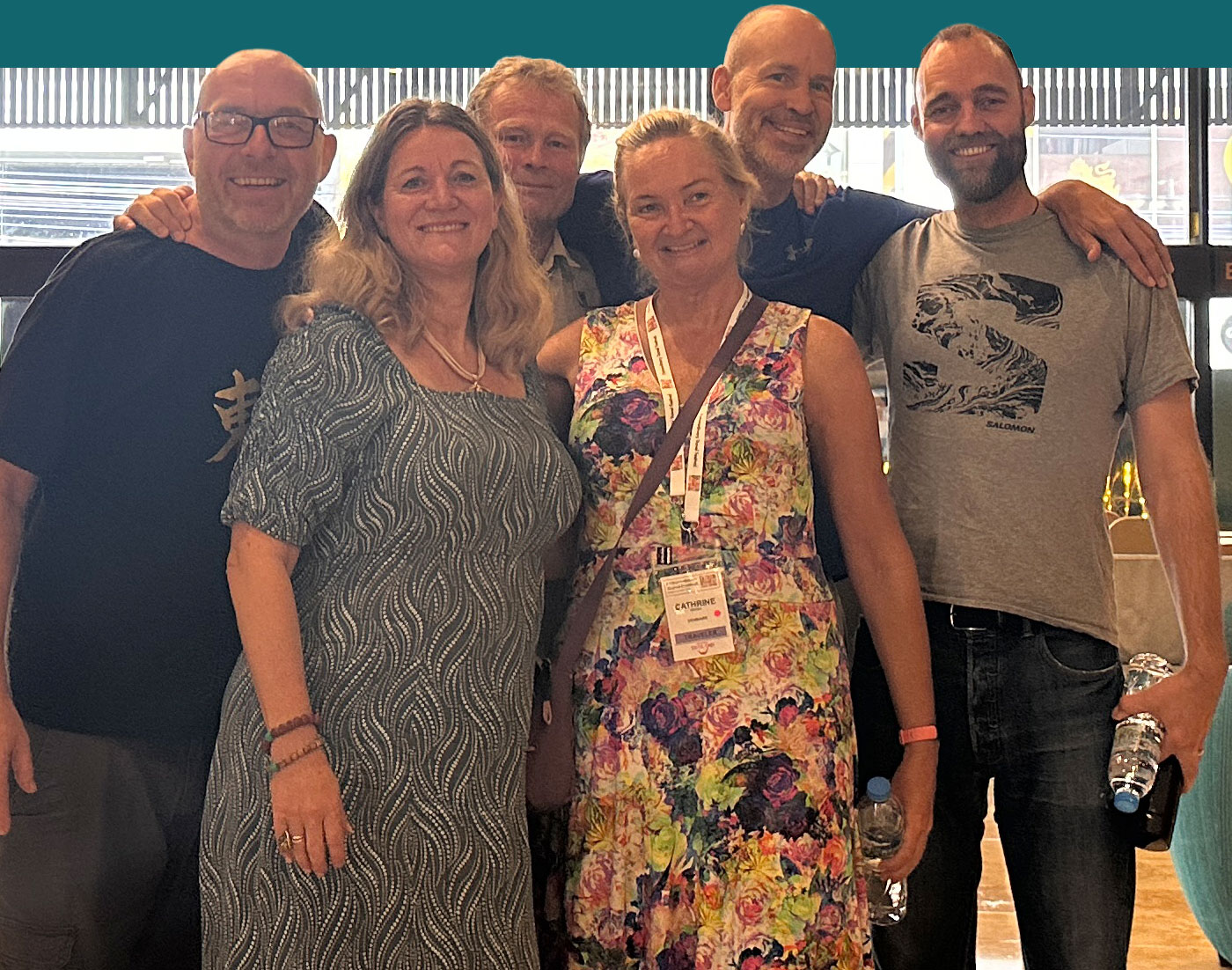In the latest episode of The Radio Vagabond Podcast, we visited an orphanage in the northern part of Nicaragua. I was there with my new friend John Pappas.
He’s a successful businessman from Canada that retired and is now a philanthropist. He’s now giving back to the children from needy families of Nicaragua by putting a lot of time and money into an orphanage here. Also, he’s supporting a young 19-year-old girl.
“I always thought that my purpose in life was to make as much money as I could, but eventually I’m just going to take it in a box or leave it here because when I go, I have no one to leave it to. You definitely need to work hard but you also need a reason to be”, he says.
“A lot of people say ‘why do you do it?’ and ‘you help them so much’, and I say ‘no no, it’s what they give us, is tenfold what we give them.”
John, says that it’s like when you adopt a child, you’re not saving a child – it’s more the child that is saving you.”
NICARAGUAN CIGARS
Then John wanted to show me a small place where they produce high-class cigars. According to John, the Nicaraguan cigar is outstanding. And on the way there he tells me that it’s not possible to buy Nicaraguan cigars here in Nicaragua. It’s crazy, but because of the tax laws, you have to export the cigars and then re-import them. All the cigars produced here in Esteli are for export only, so they don’t promote their own cigars here in their own country. So the tourists can walk away with fake cigars or Cuban cigars but can’t walk away with local cigars.
And then we entered the small place. Around 25 people are sitting around a few long tables rolling and shaping the brown tobacco leaves into big cigars.
I can tell that these people know their craft. They’ve done this before.
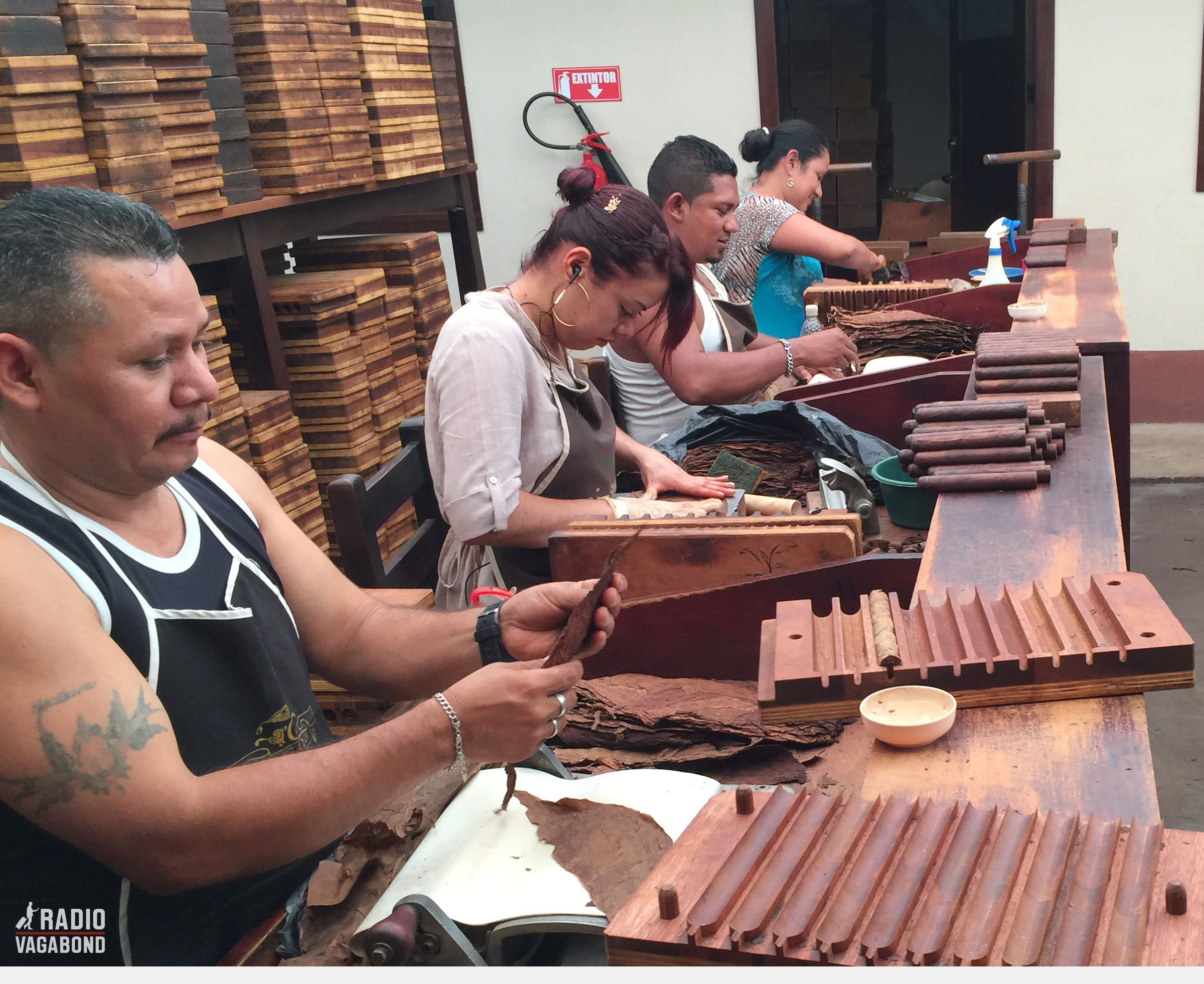
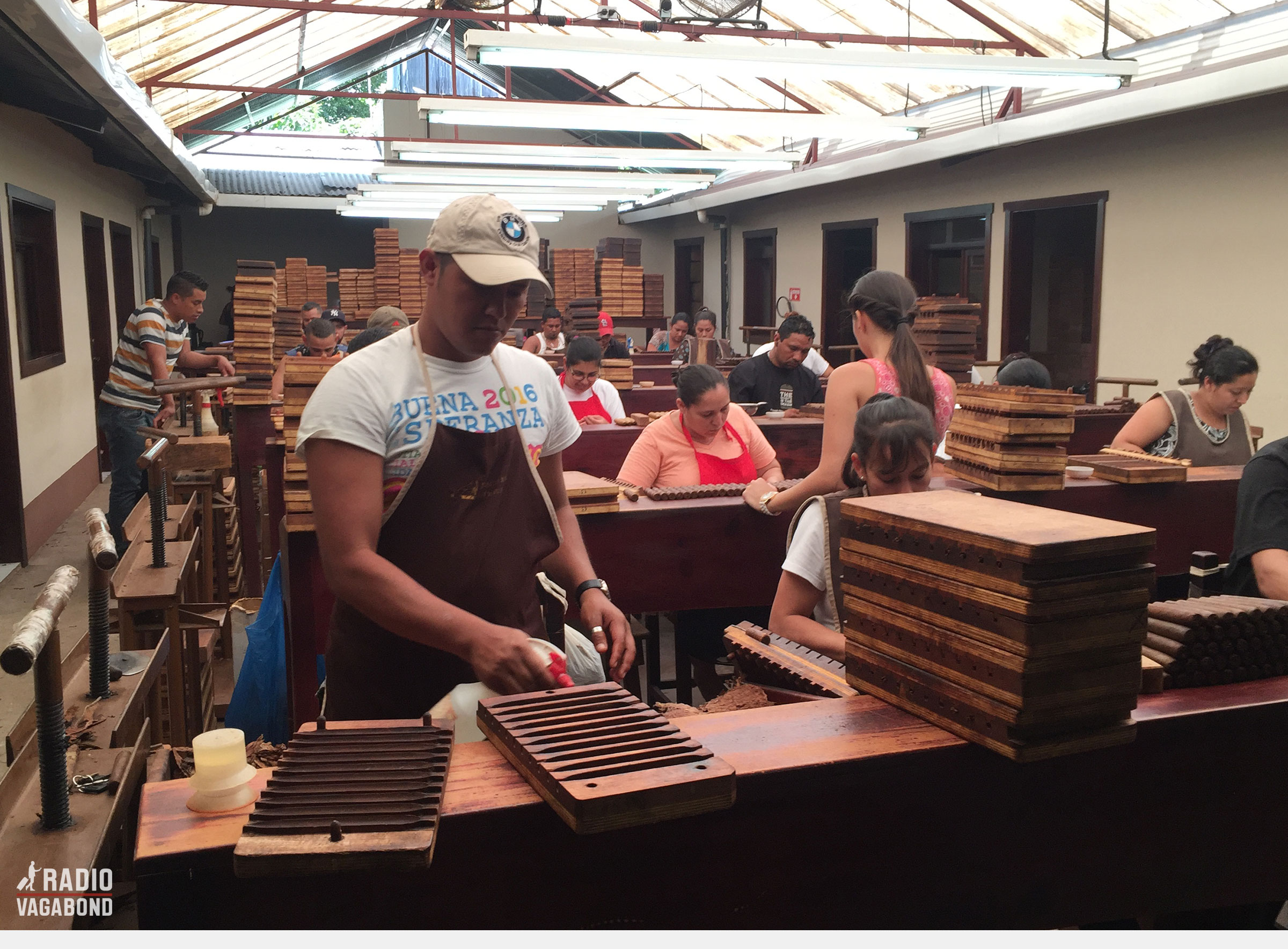
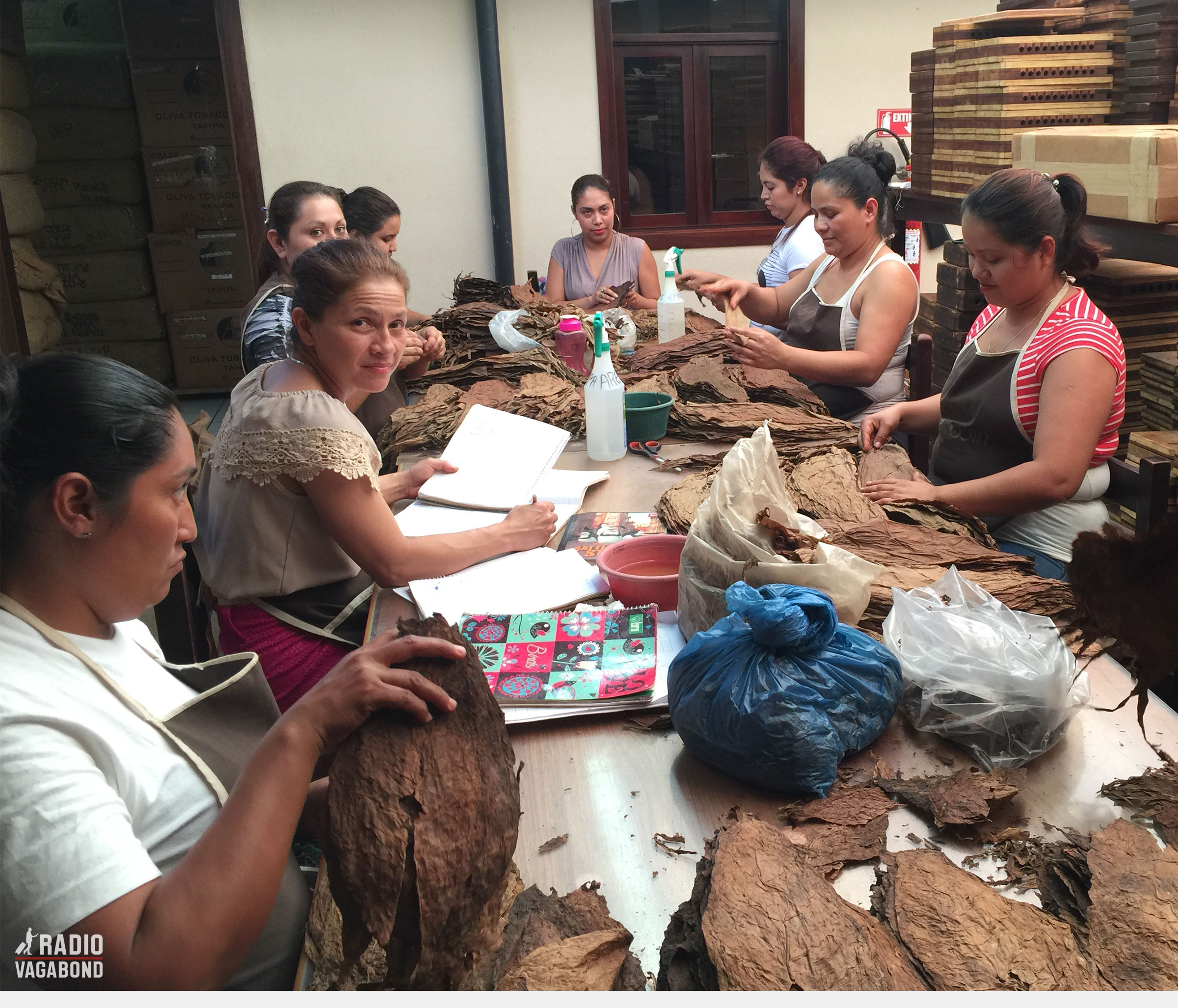
ALEX, THE STREET ARTIST
John introduced me to Alex, the most successful street artist here in Esteli. He was a street artist pioneer, and around 20 years ago he was doing graffiti.
Back in 1997 he was approached and was quite surprised. He didn’t even know how talented he was.
This meeting changed his life. At the time he didn’t really know much about what he was doing but had this raw talent. And when he met two other talented street artists, he knew what he wanted to do in his life. Now, 20 years later, Alex is “the king of street art” here in Esteli. He’s got his own crew, they do a lot of work for the cigar industry. He’s even ventured into music.
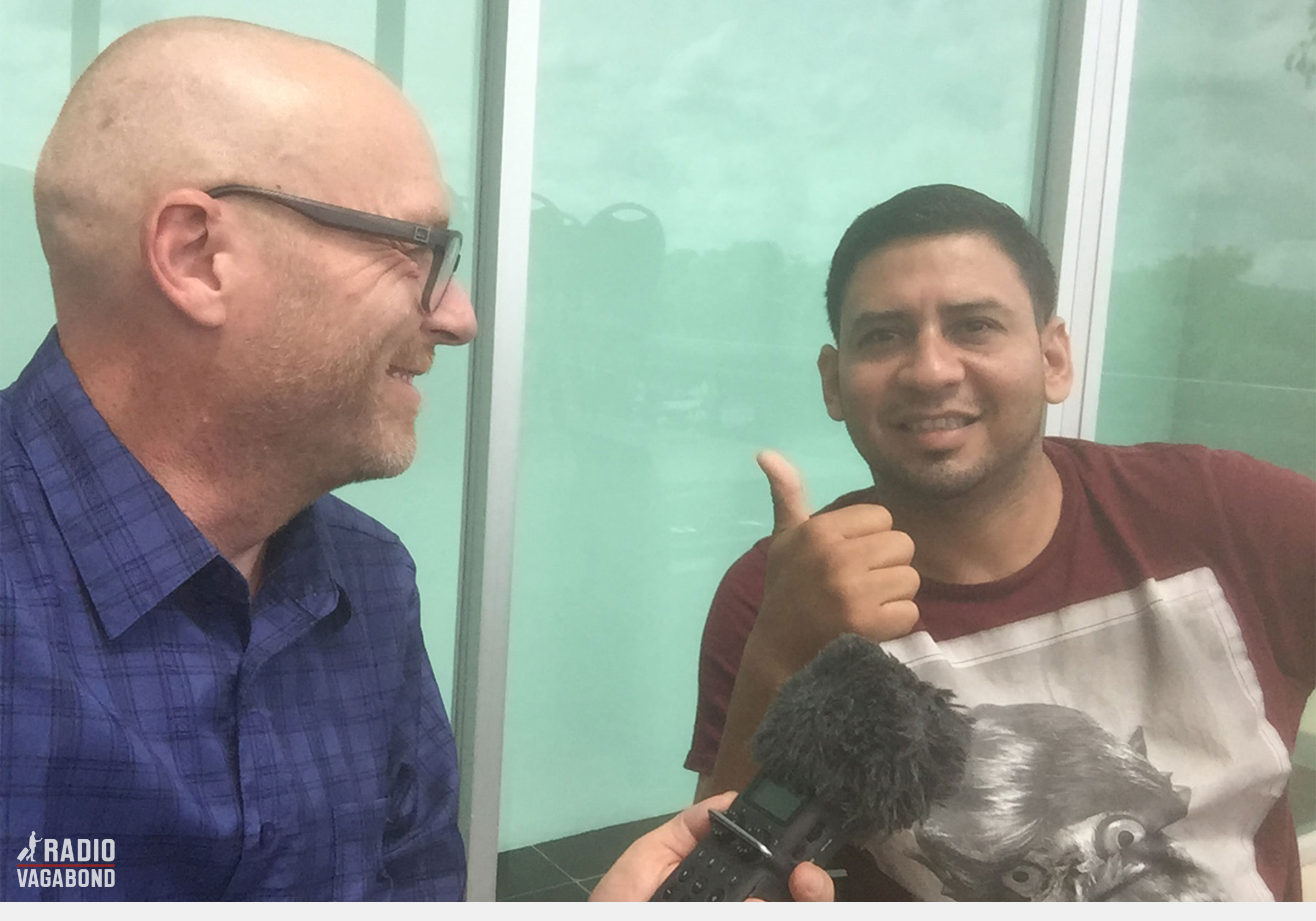
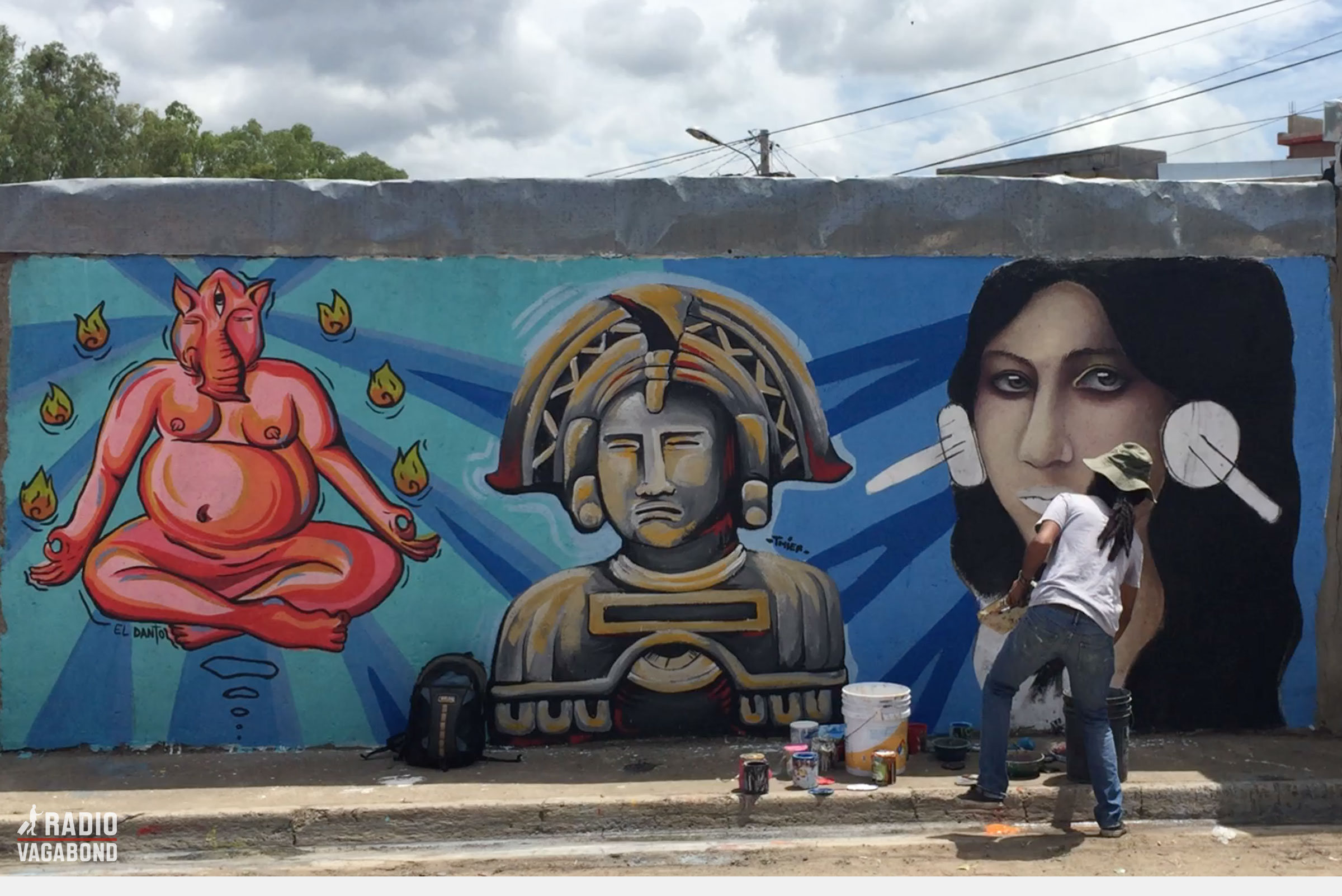
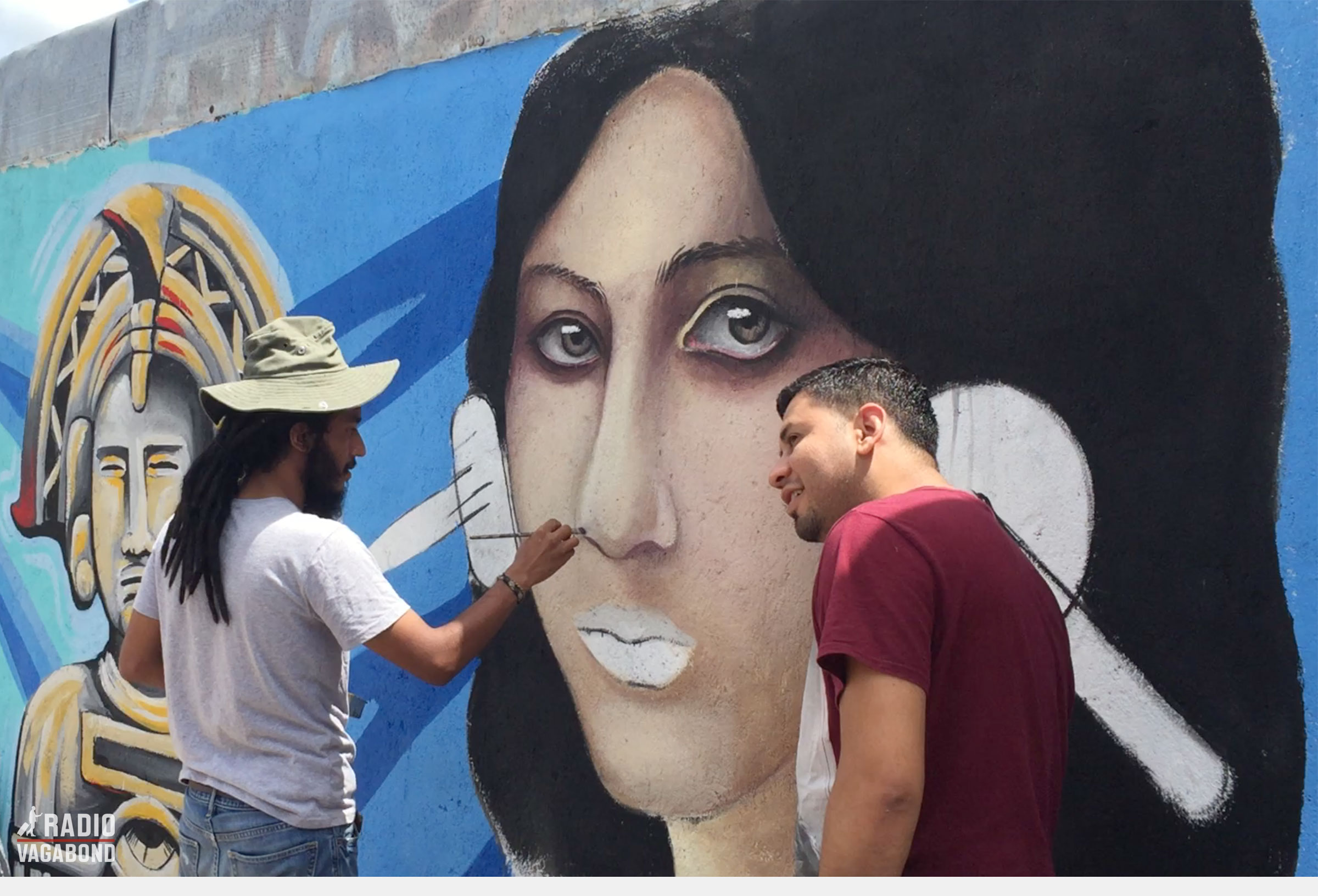
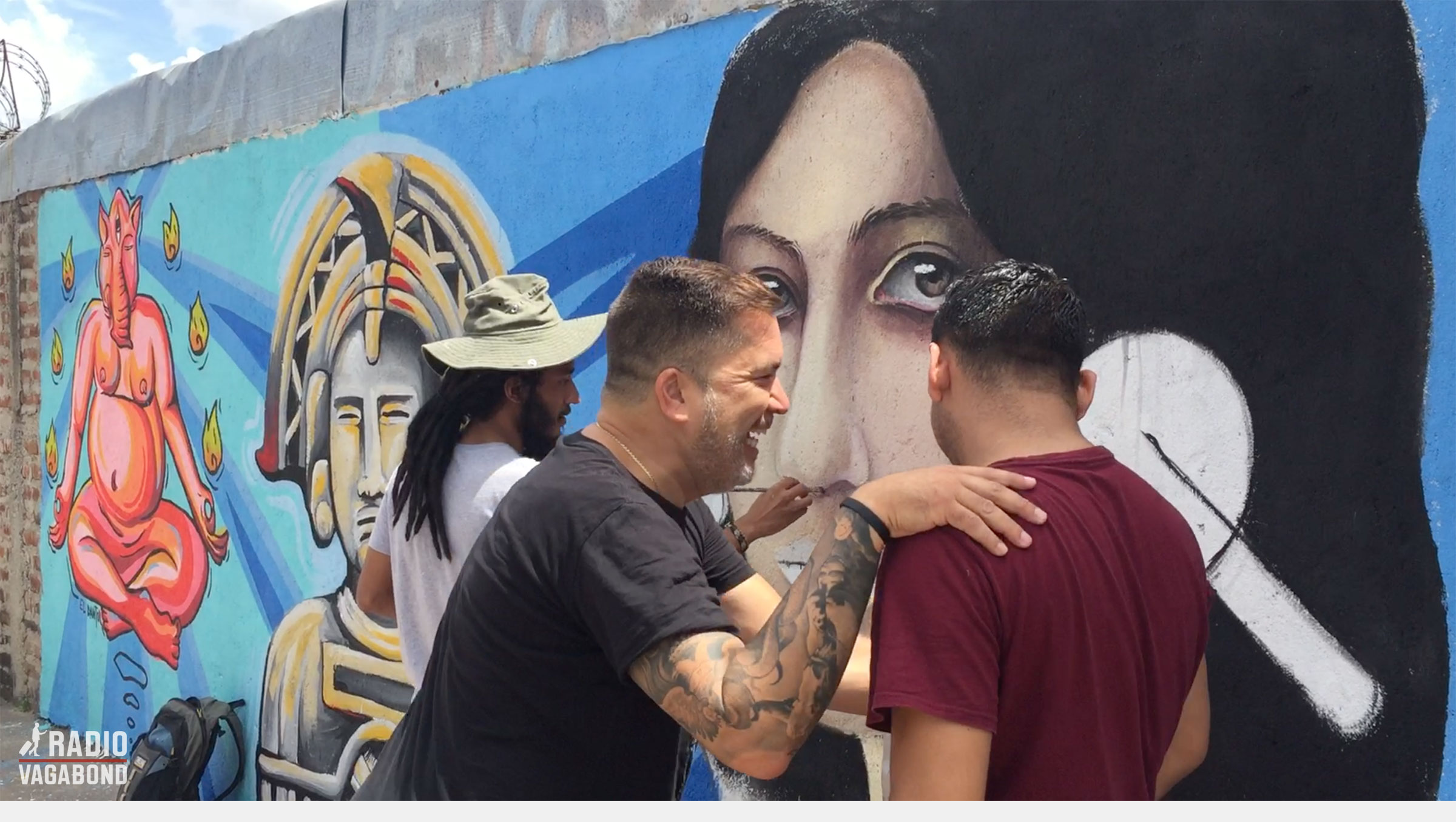
MANKU LAKE PARADISE
In this episode, I also take to back to the lake close to Granada, where I met Fernando in the first episode here from Nicaragua. Here we were talking about the cattle company he runs where investors make a little money and help local farmers here at the same time. Go back and listen to episode #080 to hear this.
We’re in a beautiful area close to the lake, Lago Cocibolca outside Granada – and right here is where there are a lot of small islands – in Nicaragua, they call them Las Isletas.
Getting to Manku Lake Paradise is a bit of a drive, but worth it. Even though it’s only 7 miles (10 km) from Granada it takes 20-30 minutes to get here, since the last half of it is on a bumpy dirt road.
But once you get here, the rate of your pulse will slow down.
It’s so beautiful and quiet, and it’s impossible to be stressed here.
There’s a big round restaurant area without walls overlooking the beautiful lake, Lago Cocibolca, and the pool. We can also see a few of the small islands. It is truly a paradise.
Fernando tells me about the place and takes me for a walk down to the lake – and after that horseback riding.
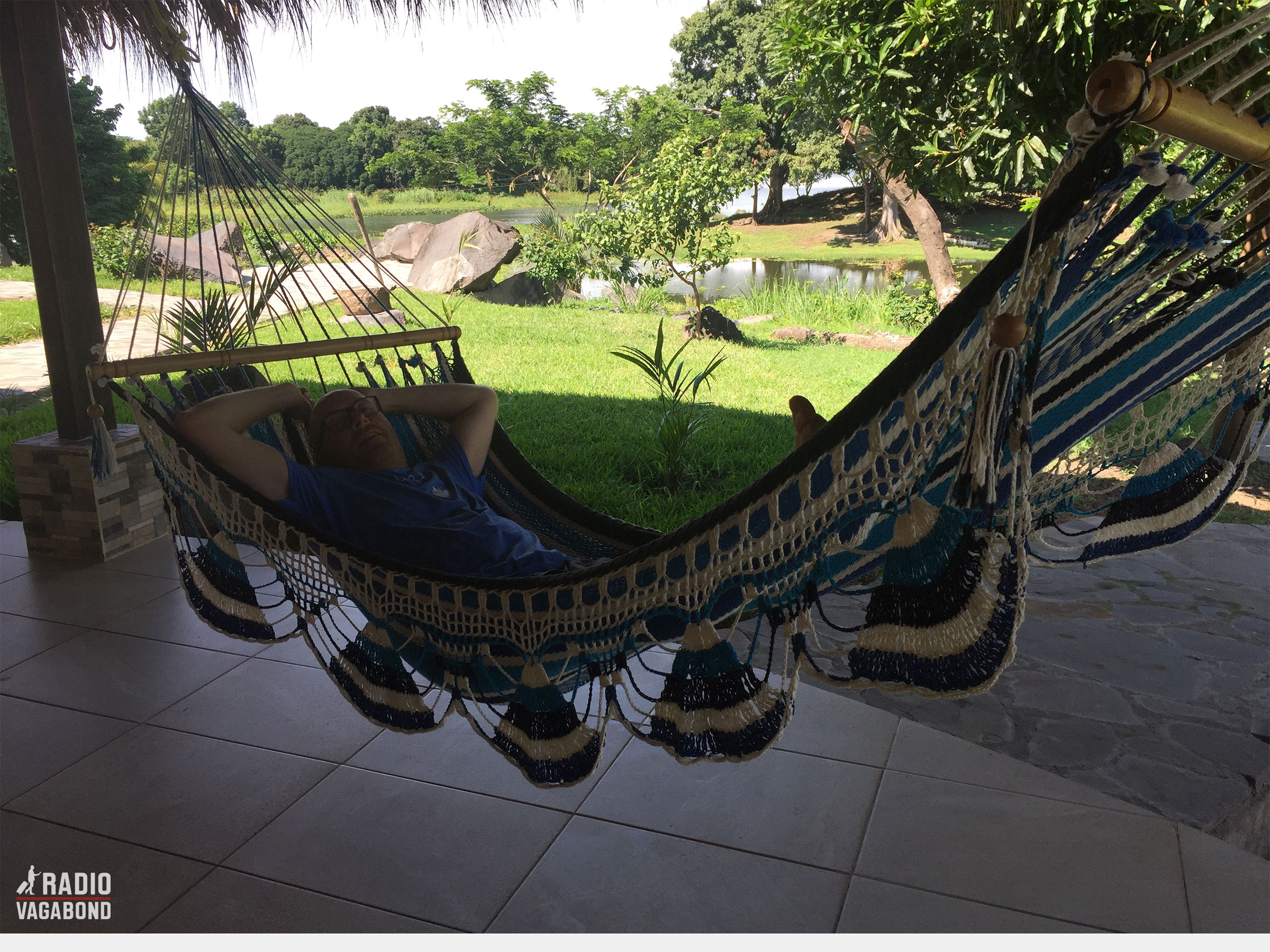
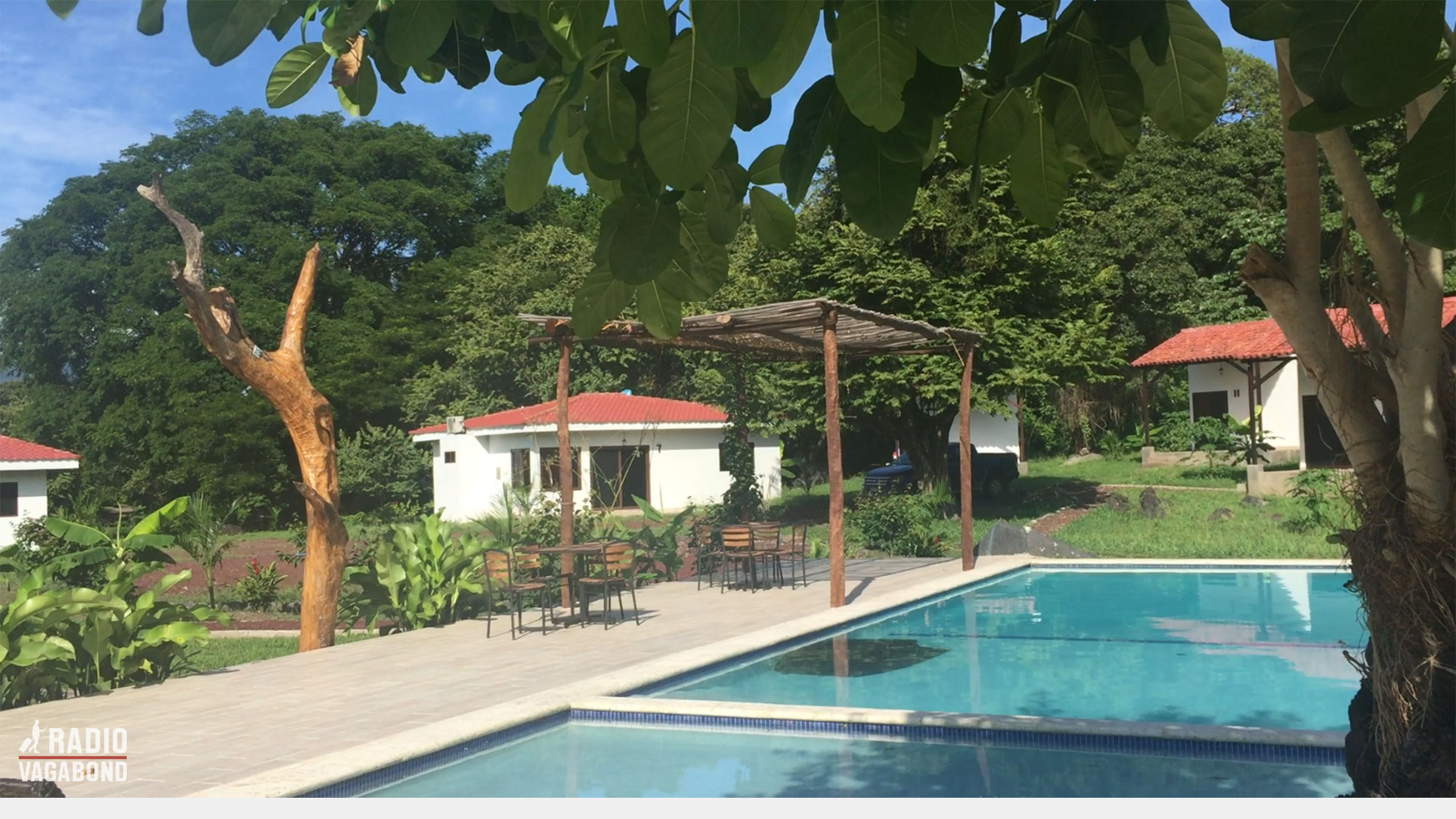
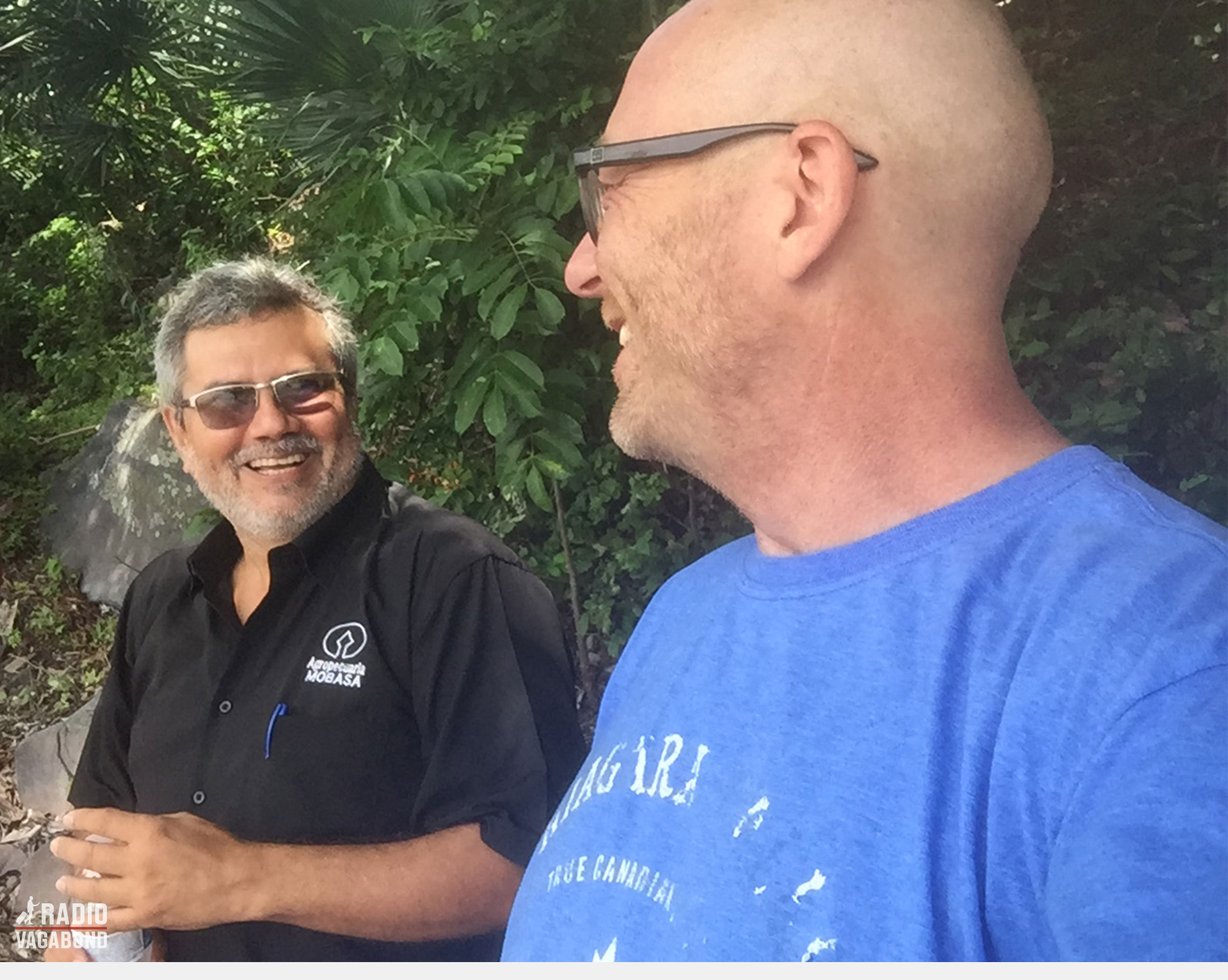
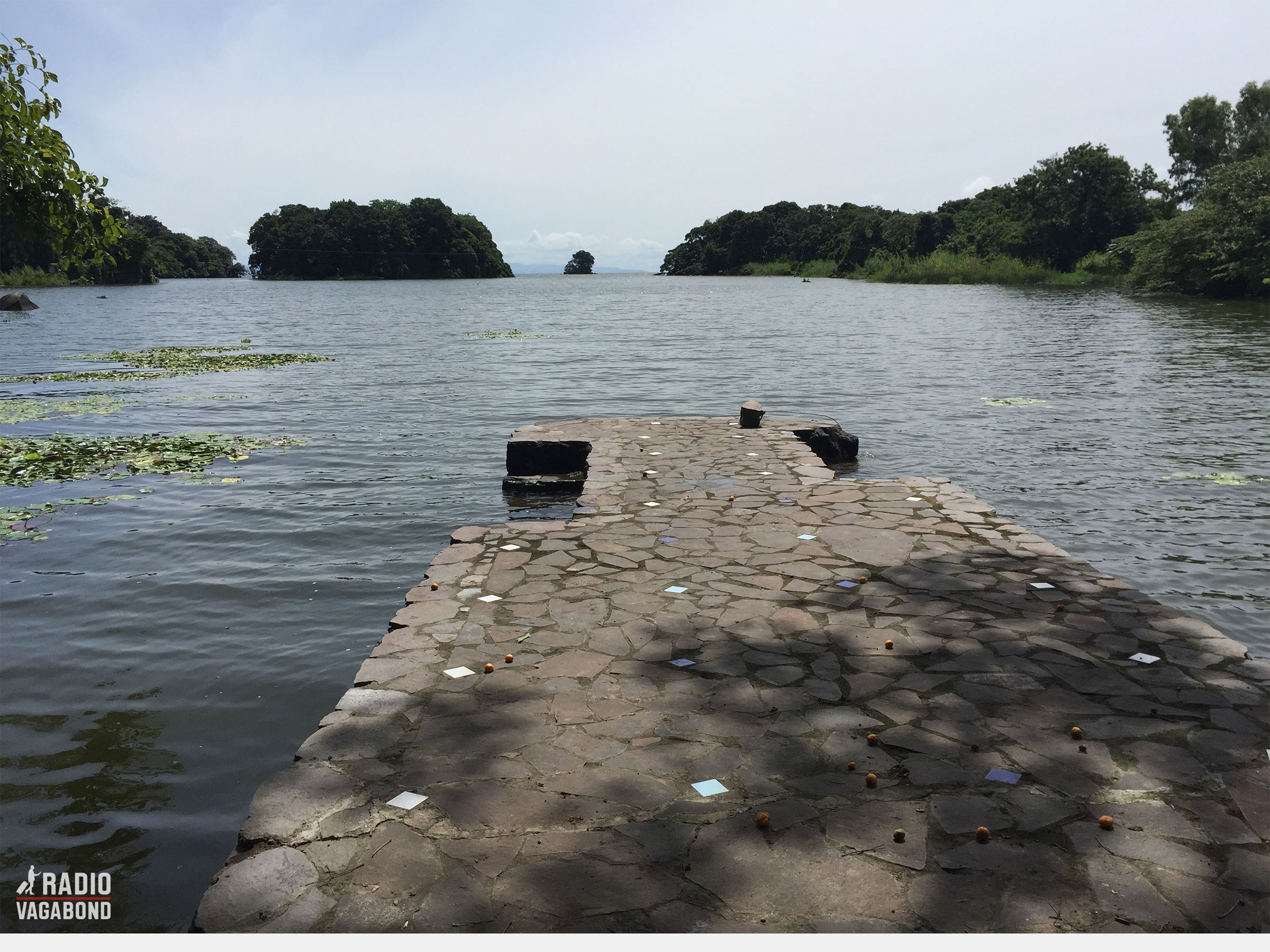
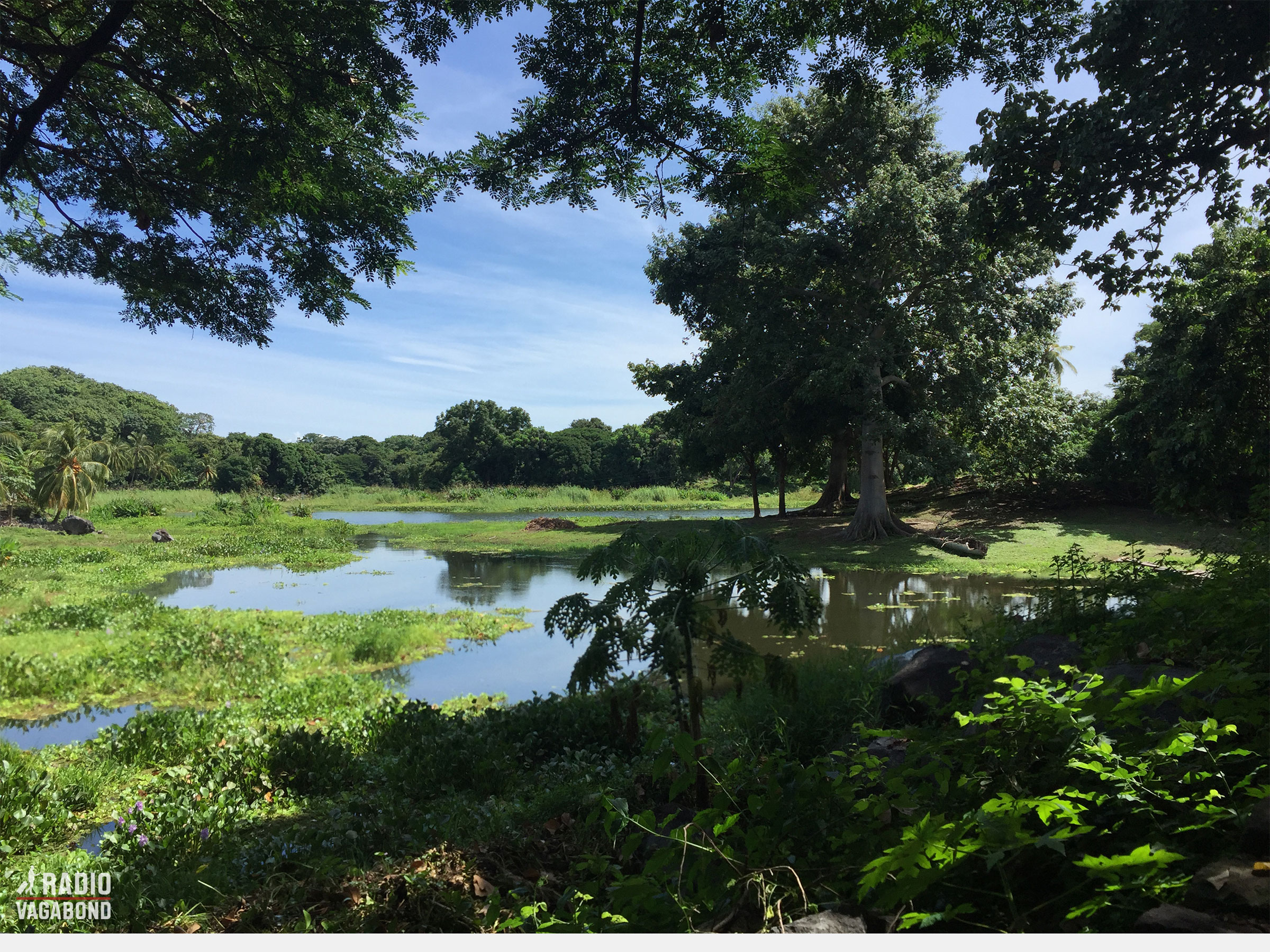
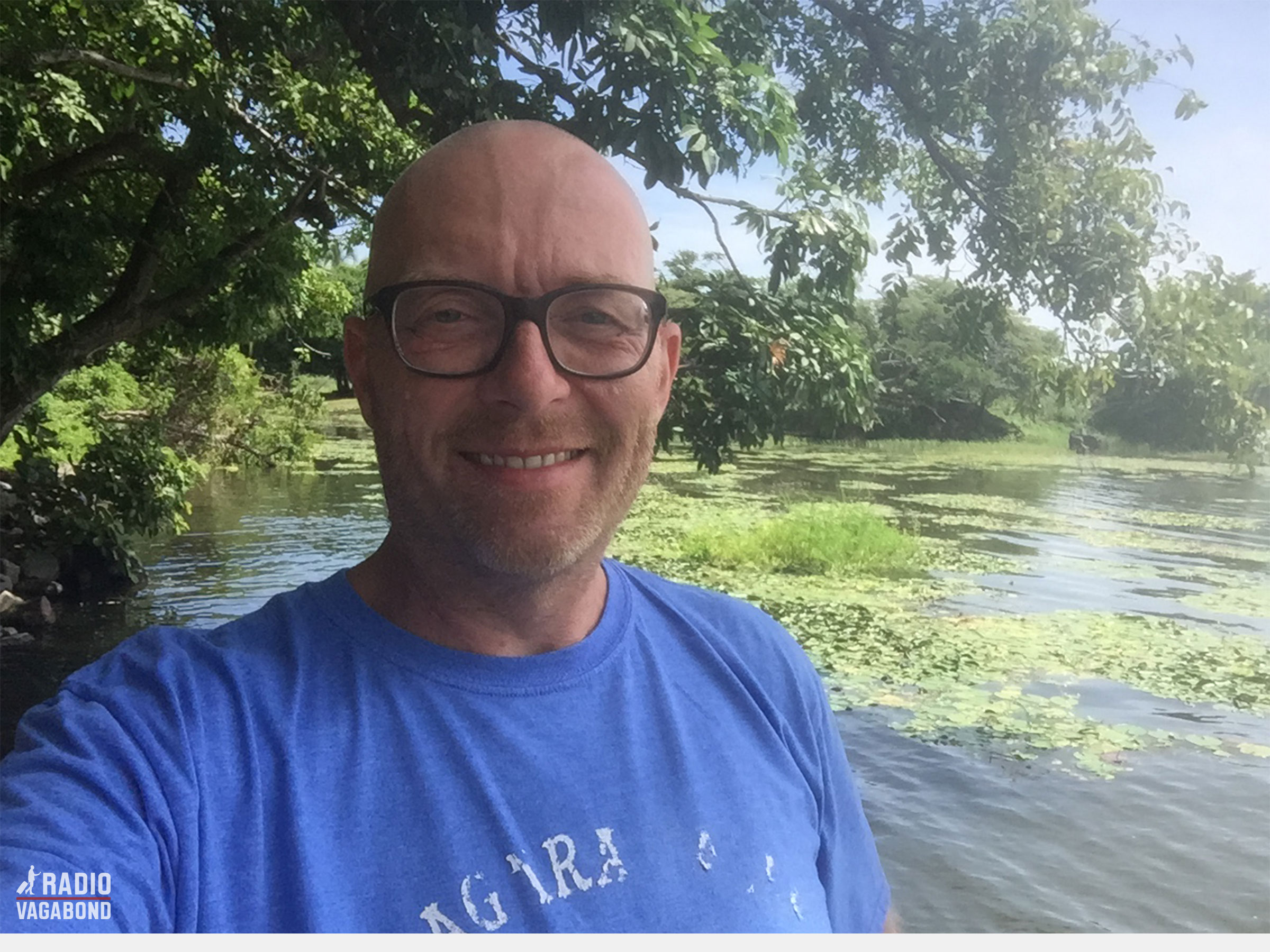
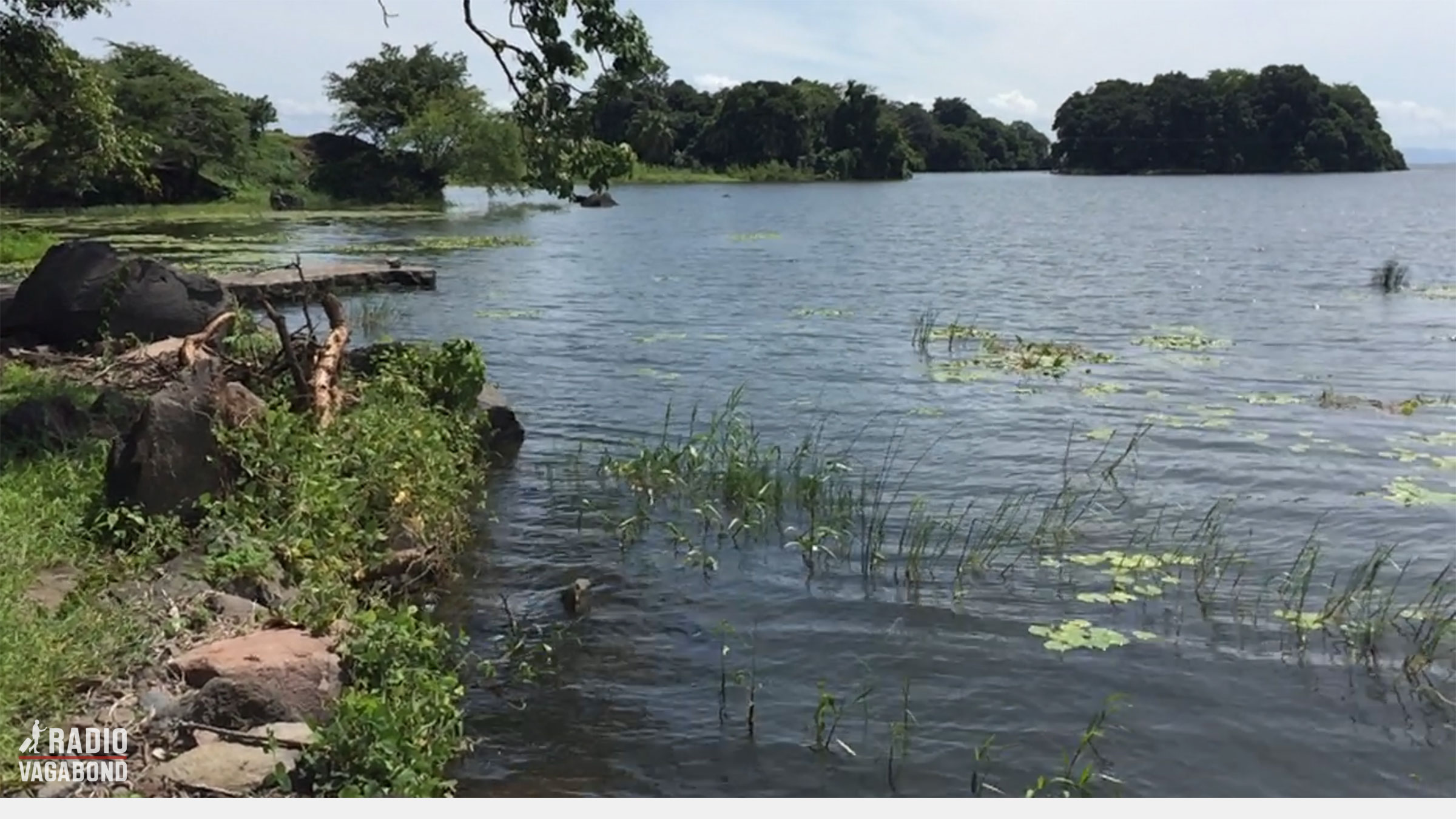
365 SMALL ISLANDS
“Las Isletas” as the locals call them were formed when a big volcano erupted here thousands of years ago and threw huge rocks into the lake.
They differ in size. The smallest is around 1000 sq.ft (100 sq.m.) and the biggest is around one hundred hectares. There is a community of about 1200 people living on the islands. Most of them here are fishermen.
A few days earlier I was on a boat ride and saw that some of the islands have hotels or luxurious houses. There are also uninhabited islets with only some palm trees growing on it. I also saw a small island where the only inhabitants were a group of little monkeys.
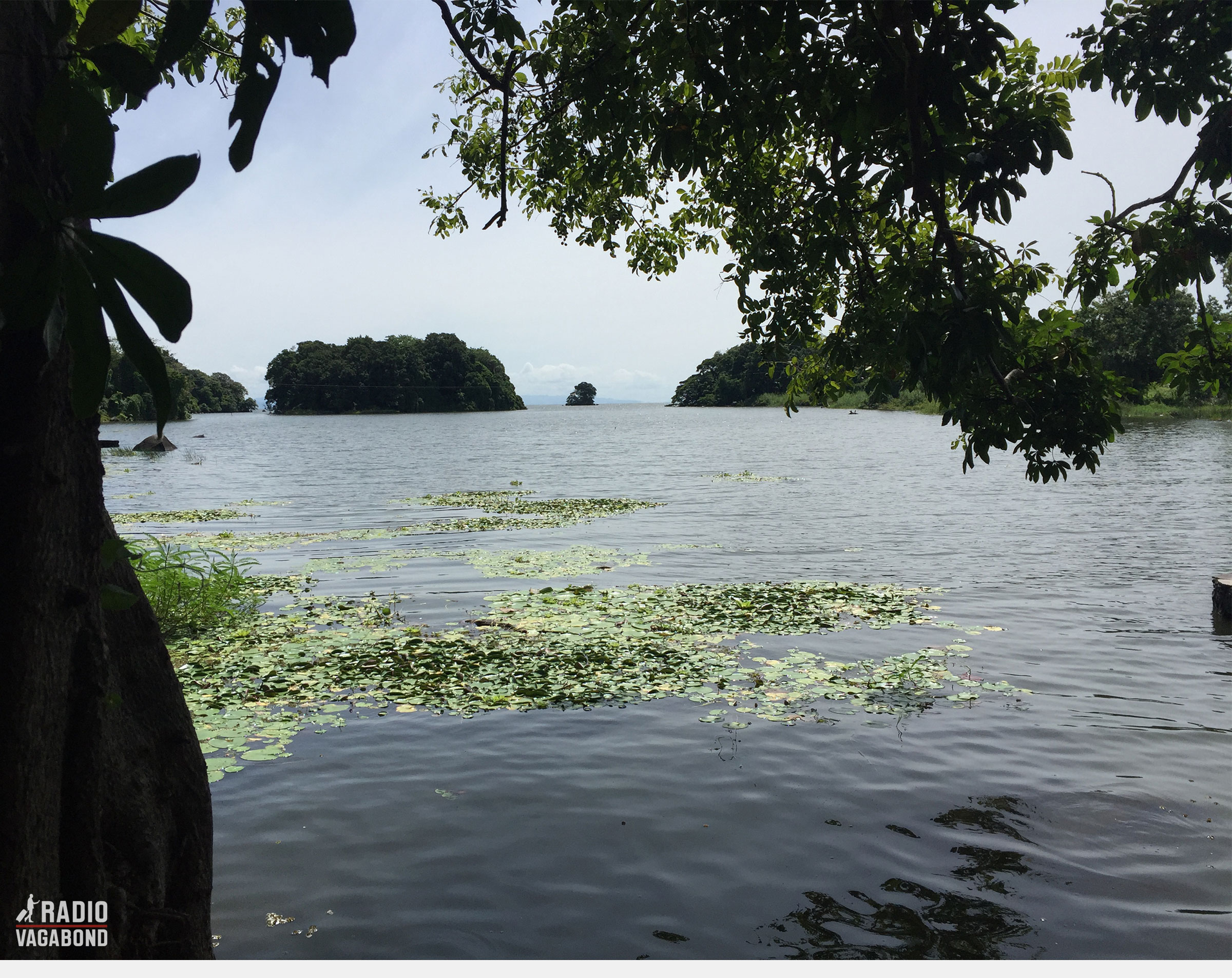
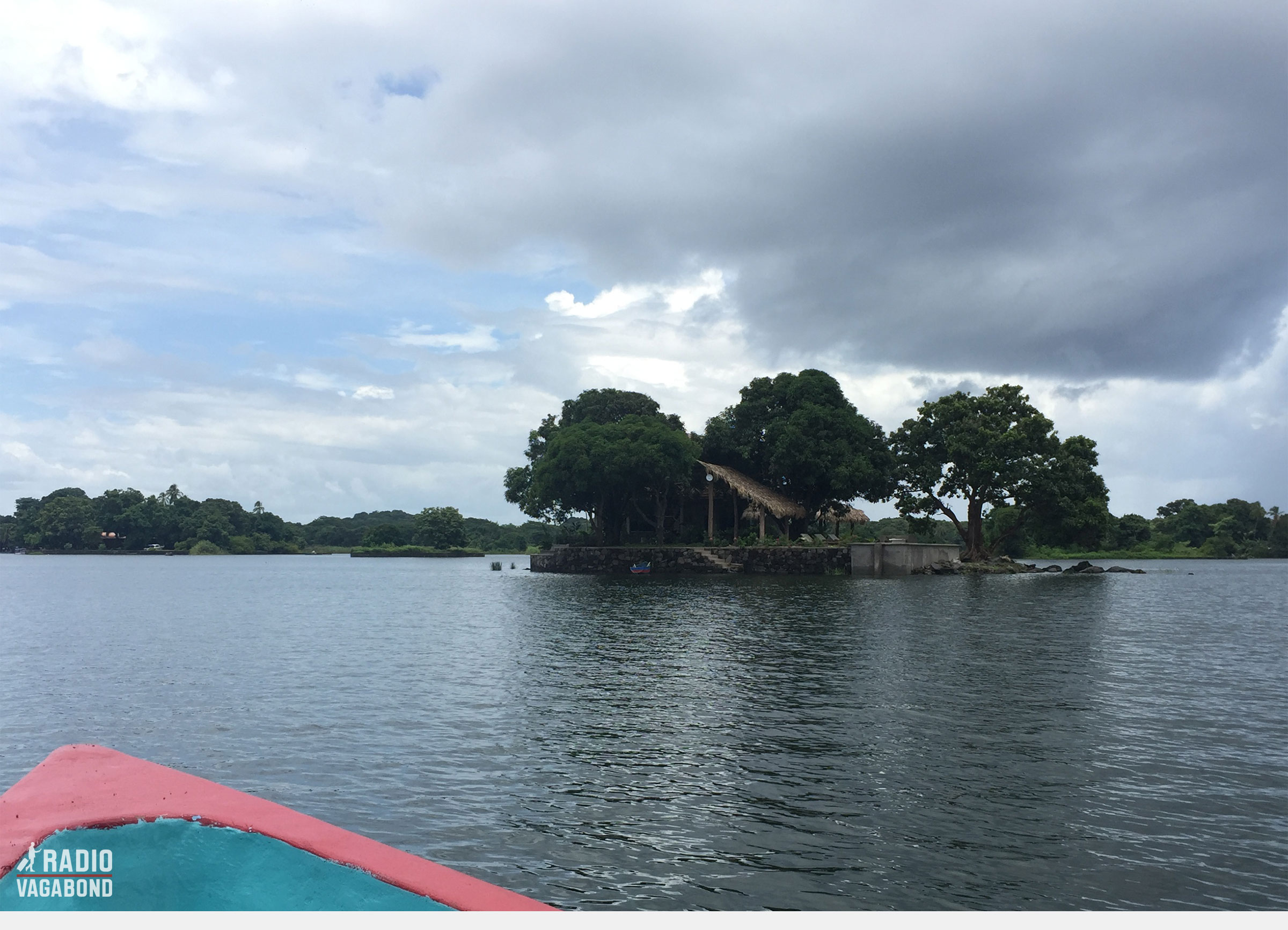
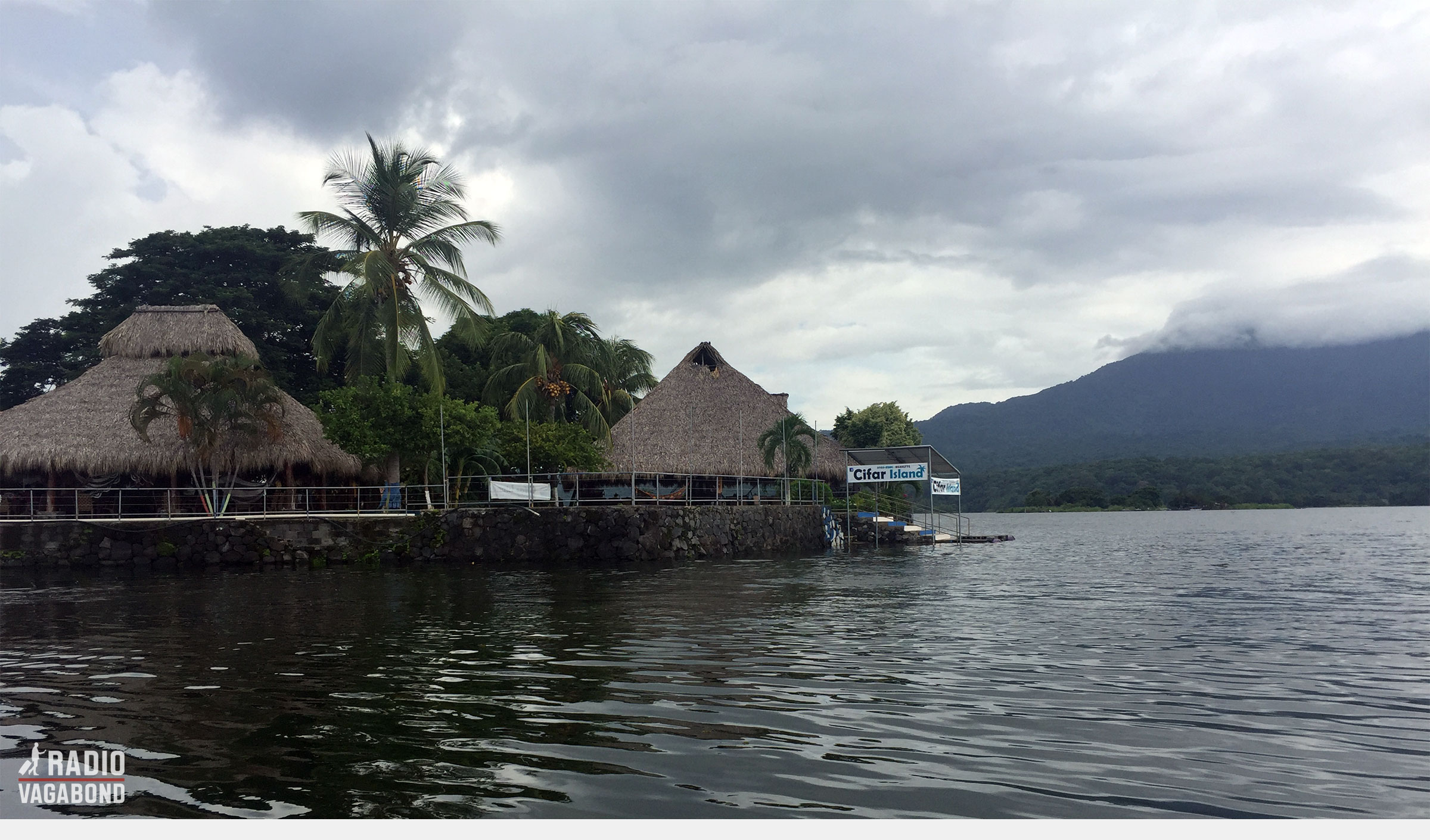
I GOT THE MAN FLU
As you might remember from the first episode here from Nicaragua, I live in a beautiful big hotel apartment in a place called Paraiso Granada.
Here I spent a week in bed. In the beginning, I thought it was food poisoning, but I found out that it was a simple flu. The “Man Flu”. So I felt sorry for myself.
For me, it was 4-5 days of basically just sleeping. And there I was, all alone in a strange country feeling sorry for myself.
And after a few days, I realized that I wasn’t alone. I had sent a message to the Dutch hotel manager, Ellen, and all of a sudden she came knocking on my door. With soup, juice, fruit, and a few tablets that might make my stomach ache go away.
I speak to Ellen, a few hours before leaving about this. Also, we talk about me having too much in the fridge. She tells me that I should just leave it. The cleaning lady will be so happy to get it.
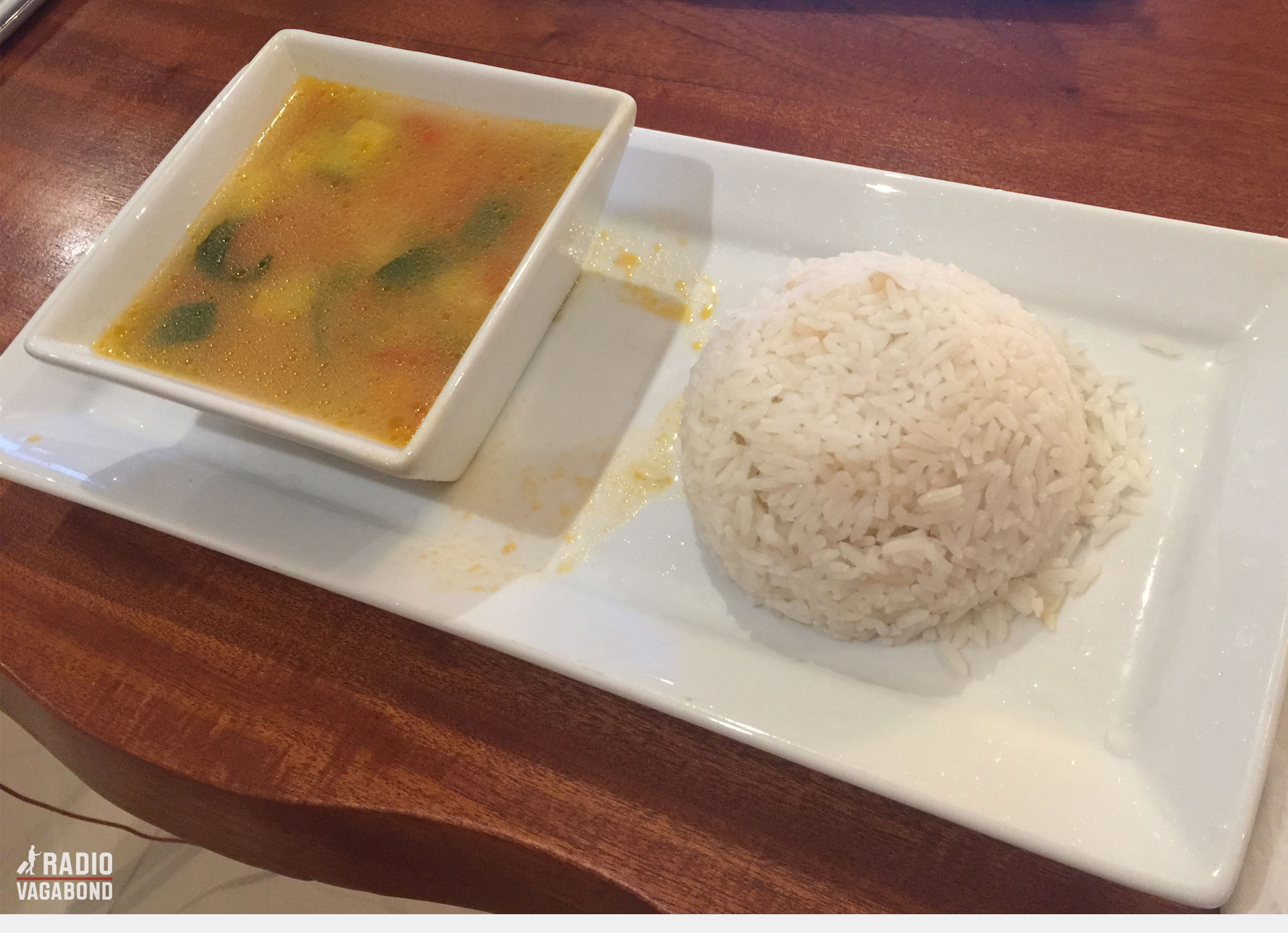
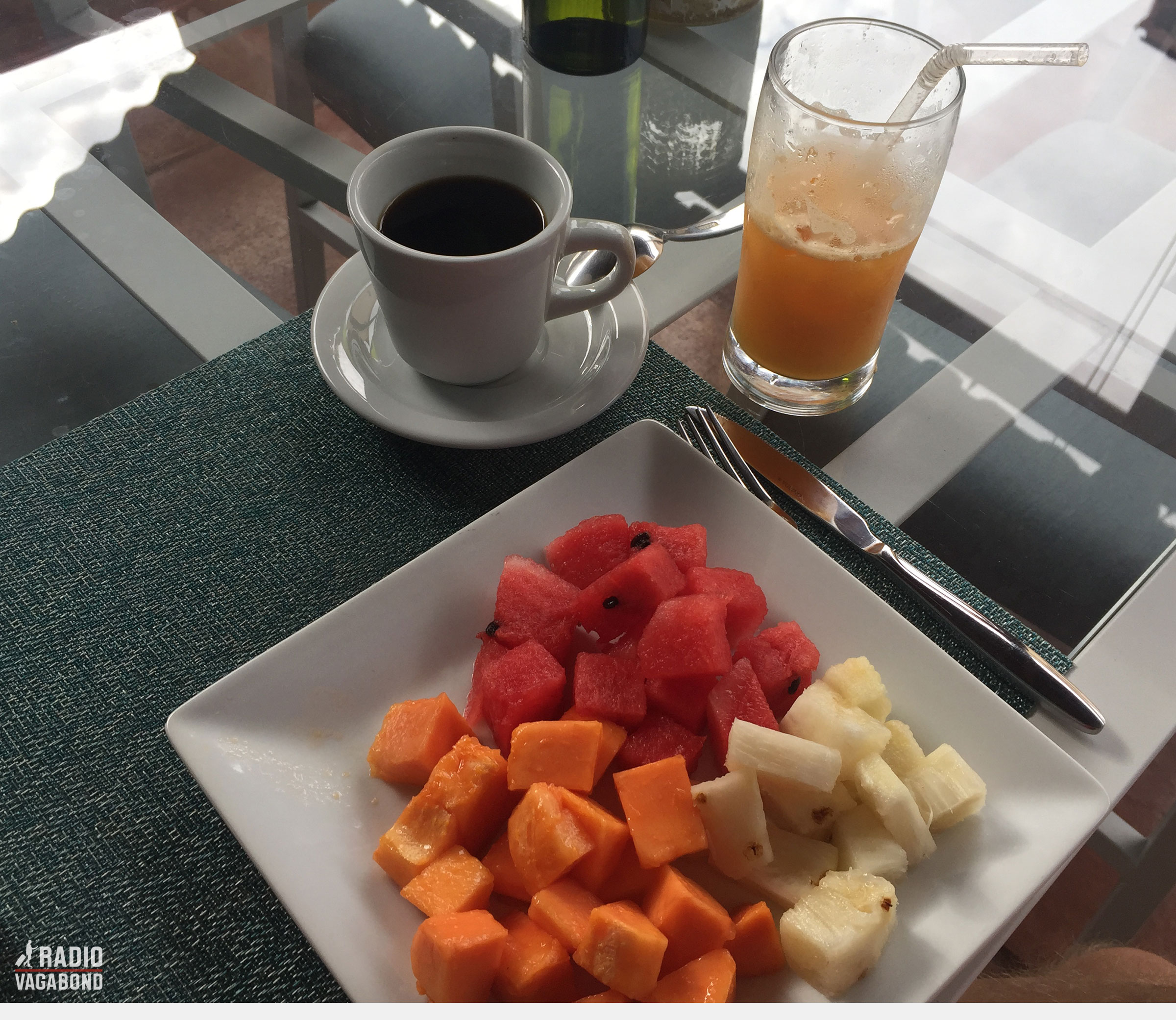
A FEW WORDS ABOUT THE SITUATION IN NICARAGUA 2018
This episode was recorded in 2017 when everything was peaceful in the country, before the 2018-conflict. And to describe life there right now in a few words: Things are bad. Very bad.
Hardly any tourists come here, which affects everything.
A few words of the places I’ve talked about here: Manku Lake Paradise is closed for the time being, and hardly any guests are staying at Paraiso Granada. The restaurant here is still open, but mainly for local guests. Every night there is an armed guard in front of the hotel.
There’s a new law now in Nicaragua:
When you speak out against the government, you can be arrested and sent to prison for 30 years after a mock trial where you are not able to get qualified legal representation, and you cannot appeal the sentence. You go away for 30 years.
The government police are analyzing pictures from demonstrations, and anyone in the pictures might get a nightly visit from them and be arrested, tortured, and sent to prison for 30 years.
I was told horrific stories about people having their tongue cut off, and their fingernails pulled out as a means of torture.
I’ve also heard about squads of heavy armored militant policemen storming houses with automatic weapons in the middle of the night.
I spoke to a man that walks around his house every night to see if there’s a chalk mark on his house, that would indicate that he is next. He also said that he feels he is too old, to live through the torture, so he has told his wife that he would kill himself with his own 9 mm gun if the house was stormed one night. He asked his wife if she wanted him to shoot her before he shot himself. Imagine having that conversation with your wife.
But that is life in Nicaragua right now in 2018, and there is not much hope of anything getting better anytime soon.
I left a bit of my heart in Nicaragua and I want to come back. I just can’t do it now – and that breaks my heart.
Next week I’ll be back in The USA for the second half of my road trip. This time I’ll go from Atlanta to New York, and I’m so looking forward to this.

